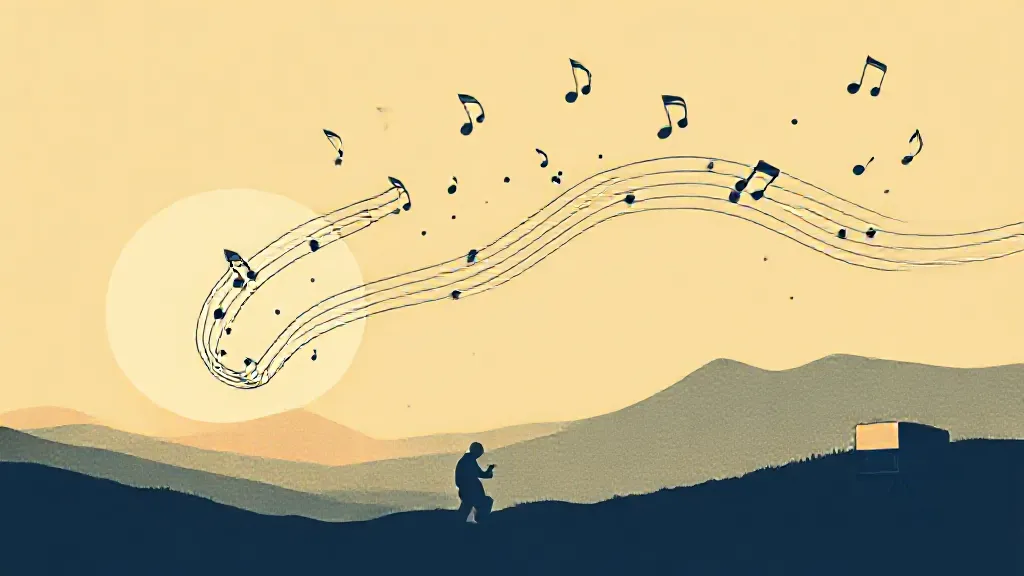The relationship between soundtracks and storytelling is profound and multifaceted, playing a crucial role in how narratives are experienced and perceived. Soundtracks can evoke emotions, enhance character development, and provide context to the unfolding story, making them an essential element in film, television, and even video games. The impact of music on storytelling is not merely an accessory; it is a vital component that can shape the viewer's understanding and emotional engagement with the narrative.
The Emotional Resonance of Music in Storytelling
Music has a unique ability to evoke emotions and memories, often more powerfully than words alone. This phenomenon is evident in many cinematic experiences, where a well-composed soundtrack can amplify feelings of joy, sadness, tension, or nostalgia. For instance, consider the iconic score of "Titanic" composed by James Horner.
The haunting melodies not only underscore the romance between Jack and Rose but also enhance the film's tragic elements, allowing viewers to connect deeply with the characters' fates. This emotional resonance is a testament to how soundtracks can elevate storytelling by aligning the audience's feelings with the narrative's emotional core.
Creating Atmosphere and Setting
Soundtracks also play a pivotal role in establishing the atmosphere and setting of a story.
The use of specific musical styles can transport audiences to different time periods or locations, enriching the narrative context. For example, the use of traditional Japanese instruments in the score of "The Last Samurai" helps to immerse viewers in the film's historical setting, enhancing their understanding of the cultural backdrop against which the story unfolds. Similarly, the eclectic mix of genres in the "Guardians of the Galaxy" soundtrack not only serves as a nostalgic element but also sets a playful and adventurous tone that aligns with the film's narrative style.
Character Development Through Musical Themes
Another significant aspect of soundtracks is their ability to aid in character development through the use of musical themes or motifs. Composers often create distinct musical identities for characters, which can evolve throughout the story. For instance, in "Star Wars," John Williams' use of specific themes for characters like Darth Vader and Luke Skywalker helps to convey their journeys and transformations.
The "Imperial March" associated with Vader evokes feelings of menace and power, while Luke's theme reflects hope and heroism. This musical characterization allows audiences to grasp the complexities of character arcs more intuitively.
Building Tension and Suspense
In genres such as horror and thriller, soundtracks are vital in building tension and suspense.
The strategic use of dissonant chords, sudden changes in tempo, and unexpected silences can create an atmosphere of unease that keeps viewers on the edge of their seats. A prime example can be found in the score of "Psycho" by Bernard Herrmann, where the infamous shower scene is punctuated by sharp, jarring strings that heighten the sense of danger and shock. This manipulation of sound not only enhances the narrative but also engages the audience's primal instincts, making the viewing experience more visceral.
The Role of Soundtracks in Cultural Context
Soundtracks can also reflect and influence cultural contexts, often serving as a mirror to societal values and issues. The use of contemporary music in films like "Black Panther" not only underscores the film's themes of identity and empowerment but also connects the narrative to broader cultural movements. By incorporating artists from diverse backgrounds, the soundtrack becomes a celebration of heritage and modernity, reinforcing the film's message while engaging audiences on a cultural level.
The Evolution of Soundtracks in Modern Storytelling
With the advent of technology and digital media, soundtracks have evolved significantly, impacting how stories are told. Streaming platforms and social media have changed the way audiences consume music, leading to the rise of curated playlists that accompany films and series. This shift allows for a more interactive experience, where viewers can explore the music that enhances their favorite stories.
Additionally, the integration of user-generated content and remixes has opened new avenues for storytelling, allowing audiences to engage with narratives in innovative ways.
Conclusion: The Indispensable Role of Soundtracks
In conclusion, soundtracks are an indispensable element of storytelling that elevate narratives across various mediums. They enhance emotional engagement, create atmosphere, develop characters, build tension, and reflect cultural contexts, all while evolving with technological advancements.
Understanding the profound impact of soundtracks can deepen our appreciation for the art of storytelling and its ability to connect us to the human experience.
